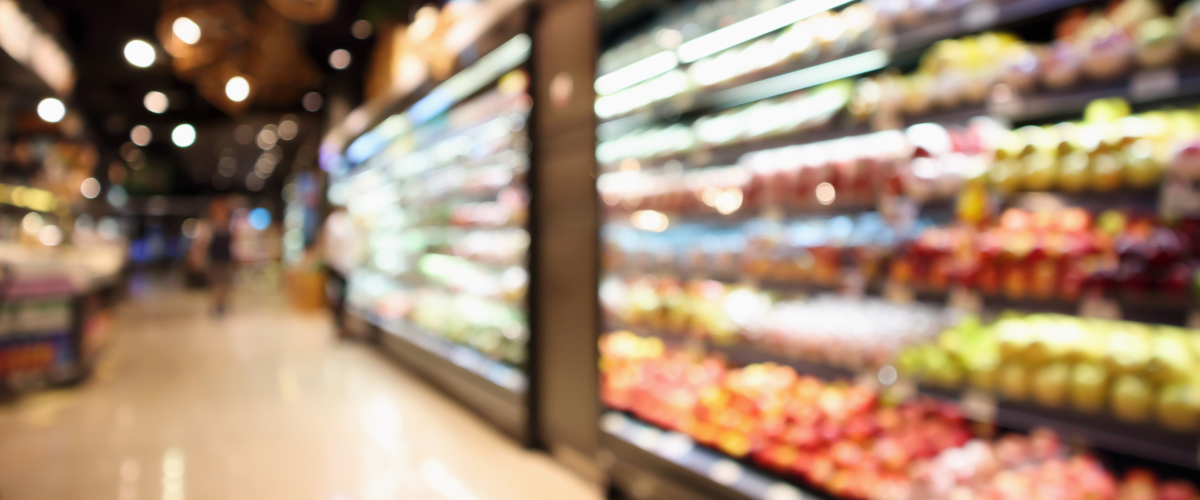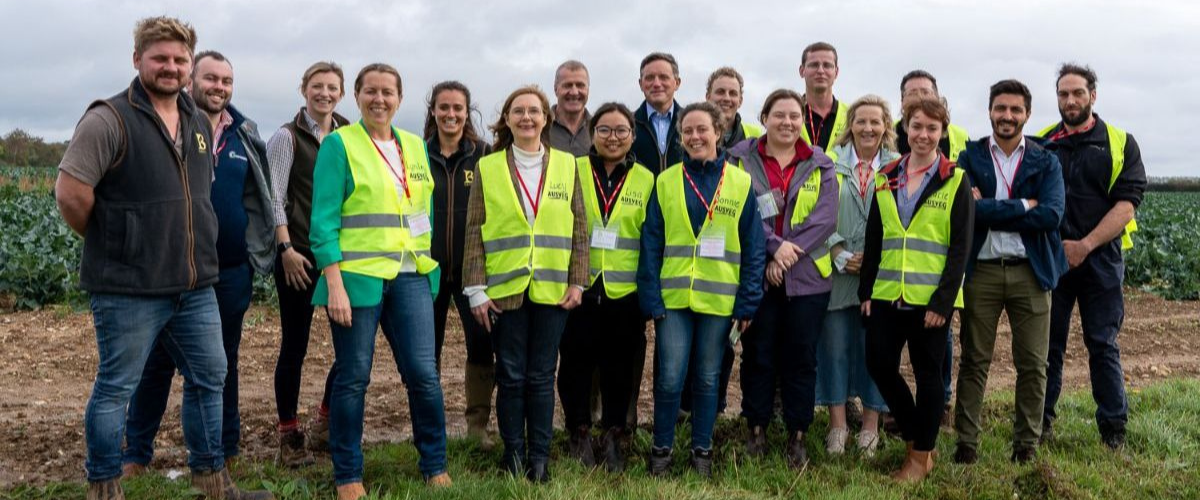
AUSVEG Advocacy: Pricing & inputs
21 July 2023
AUSVEG Advocacy: European horticulture workforce insights from ATMAC study tour
31 October 202328 Sept 2023
Survey into global production and operating costs
AUSVEG is a member of the Global Coalition of Fresh Produce, a group of international produce associations from around the world with a joint vision to create resilient global value chains for fruits and vegetables.
The Coalition’s mission is to voice solutions to address disruptions in global supply chains for fresh produce, including – but not limited to – rising costs, and to share and promote best practices.
Last week the Global Coalition of Fresh Produce published the final results of its survey into the increasing costs of fruit and vegetable production around the world and the impacts on the whole produce industry and end consumers.
The results of the survey, conducted in the autumn of 2023, highlighted that producers of fresh fruits and vegetables around the globe experienced unprecedented increases in production and operating costs during the COVID-19 pandemic, regardless of their region of operation.
The increases were led by fertiliser (up 60 percent worldwide), construction (48 percent), fuel and gas (41 percent), shipping (40 percent) and electricity (40 percent). In Australia, production and operating costs went up on average 37%, however key inputs such as fertiliser, labour, fuel/gas, electricity, and packaging went up 102%, 17%, 56%, 38% and 57% respectively.

Globally most operators were able to increase their selling prices, with rises of 11 percent in Europe, 13 percent in Oceania and South America, 14 percent in North America and 23 percent in Africa. However, these increases were not enough to compensate for the rise in production and operating costs, leaving nearly three fifths of the global industry selling at a loss or breaking even.
In Australia, 57% of producers were either selling at a loss or breaking even, with 43% of producers selling at a profit. The common reason cited for price increases not compensating for rising production costs was lack of bargaining power with retailers, and the expectation from retailers that growers should absorb the costs and become more efficient.
Eighty percent of global respondents noted that they are delaying or cancelling investments in their businesses, not only in capital and equipment but also in innovation and expansion. In Australia this was slightly higher at 83%, with growers citing that they looked in all aspects of their business to reduce costs and become leaner.
With a significant retraction in capital expenditure, it is likely that the full impact of the rise in input costs will be felt for years to come, particularly given the current economic climate for growers is potentially worse than when the survey was undertaken in autumn this year.
As highlighted previously, the Workforce Sentiment Survey undertaken by AUSVEG in July 2023 reported that vegetable growers are questioning their future in the sector, with more than 30 percent of Australian vegetable growers now considering leaving the industry within the next 12 months. With chronic workforce shortages affecting 72 percent of growers, 45 percent percent rate their future viability with current workforce shortages as ‘poor to very poor’.
Coincidentally, a survey of British farmers by Opinion Matters in July 2023 found that 53 percent considered their farm to be at financial risk with almost half (49 percent) believing they will have to give up their farm in the next 12 months.
The responses came from a panel of 100 fruit and vegetable farmers, aged 18+, who are currently trading with supermarkets or have traded with supermarkets in the last five years. A huge 69 percent of survey respondents agreed that tougher regulations are required to redress the imbalance of power between farmers, processors and the supermarkets.
Furthermore, 70 percent agreed that it would have a positive impact on their business if buyers paid the amount that they initially agreed to pay (e.g., did not then try to slash prices after initial agreement) and 64 percent agreed that it would have a positive impact on their business if buyers bought everything they committed to buy.
The link to the full survey results: Get fair about farming research overview.
Economic sustainability of fresh produce webinar
Further to the survey results, the Global Coalition of Fresh Produce held its first webinar for the global fresh produce industry, titled Economic sustainability in global supply chains for fresh fruits and vegetables.
Over 200 growers, industry representatives, national and international officials and academics registered to attend the first webinar.
The webinar featured presentations by experts in the global fresh produce industry, including Cindy van Rijswick, global strategist at Rabobank; Alan Renwick, professor of agricultural economics at Lincoln University (New Zealand); and Niccolò Ciulli, advisor at Eurocommerce, as well as insights from Global Coalition members.
Professor Alan Renwick’s presentation (found here) focused on the imbalance within the grower-retailer relationship, which is a global phenomenon and not just isolated to Australia. Professor Renwick talks about some of the tools available, such as mandatory codes of practice, however there are no easy fixes. As the slide below indicates, there is inconclusive evidence that certain actions always have positive outcomes for the supplier.

Niccolò Ciulli, advisor at Eurocommerce, gave some very interesting insights into consumer behaviour in Europe, especially with rising inflation and cost of living pressures. His presentation (found here) demonstrates the decline in fruit and vegetable consumption as inflation increases, with consumers swapping fresh produce for cheaper carbohydrates such as pasta, rice and canned products.
Eurocommerce identified four trends for the future:
- Normalisation of prices/volumes
- Value of private label
- Online growth
- Sustainability cooperation
The widespread use of private label or generically branded product in fresh produce is a contentious issue, and in a world where we are motivated to make purchasing decisions based on brand, fresh produce is already on the back foot.
A report released by KPMG on 22 October, Shifting the Dial on Vegetable Consumption, showed that 72% of Australian consumers identified that vegetables were too expensive. That is not the signal to make vegetables cheaper, that is a very clear signal to educate consumers to see the value in their fresh produce. Generically branded fresh produce provides little opportunity to correct this imbalance, but rather reinforces it: private label=cheap.

AUSVEG, amongst other member of the Coalition, also provided an update to the webinar participants. AUSVEG spoke about Australia’s relative isolation, in global logistics terms, and lack of sovereign capability, which tested growers’ ability to produce fresh produce during the COVID-19 pandemic and still underlies our call for a national food security strategy.
AUSVEG highlighted that inflation, severe weather events, increasing compliance, significant biosecurity threats, and chronic workforce shortages were just a few of the challenges that growers have faced in the last few months, and how recent months’ near perfect weather conditions across the country has now caused oversupply of fresh produce and very deflated retail prices – a total turnaround from the high prices seen last year due to significant flooding events.
However, despite the various difficulties outlined by presenters, panellists agreed that the global fresh produce industry is inherently dynamic and resilient; in addition, fruits and vegetables are key elements in the global shift towards healthier and more environmentally sustainable diets.
This will be the focus of the Coalition’s next two seminars, on environmental sustainability and on the consumption and promotion of fruits and vegetables (the dates of which are to be confirmed).
To find out more about the Global Coalition of Fresh Produce and obtain the full report, visit their website at www.producecoalition.net or contact them at info@producecoalition.net.

